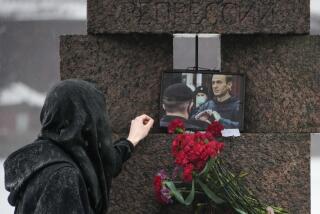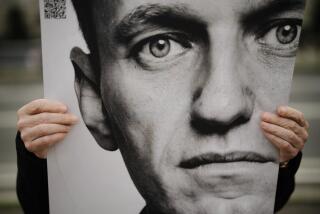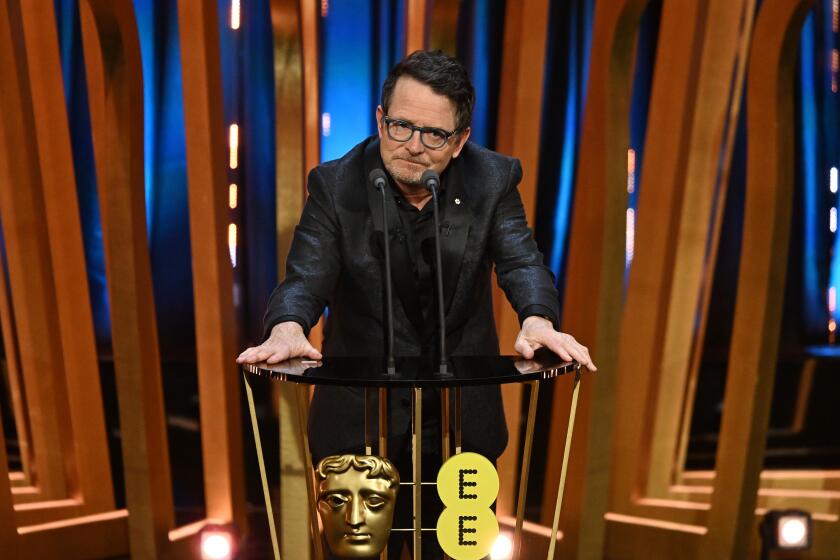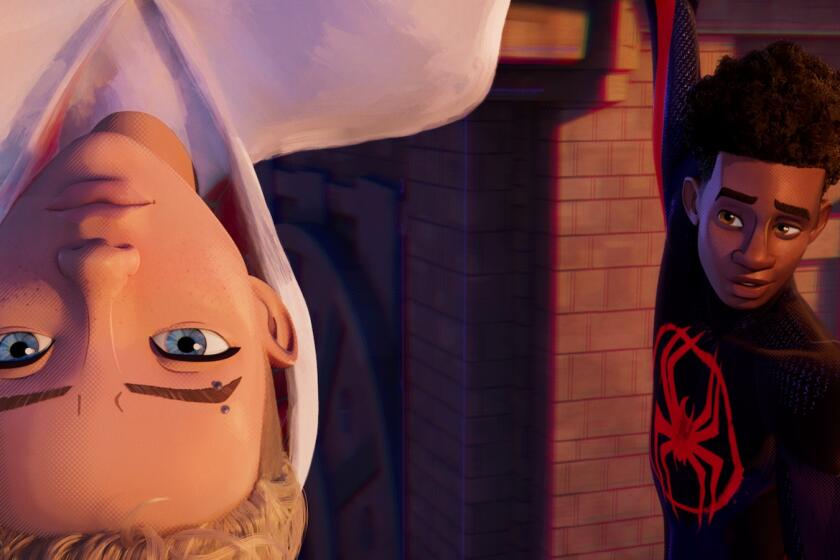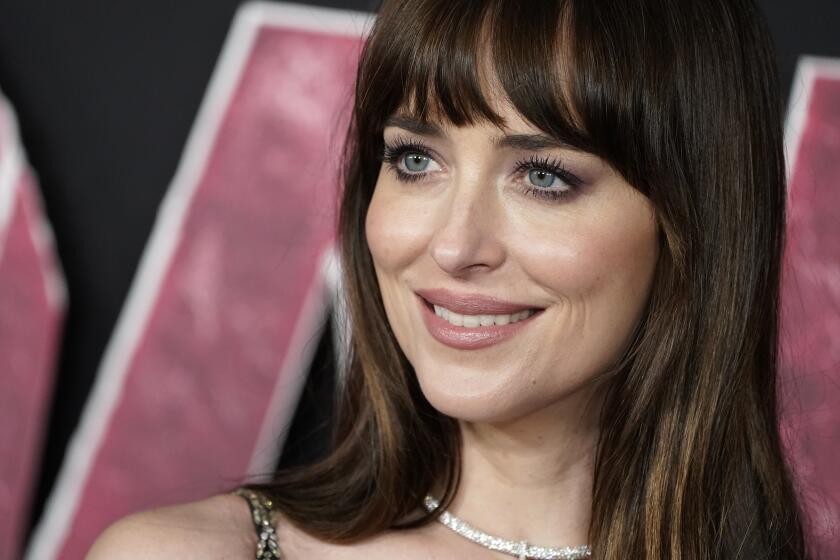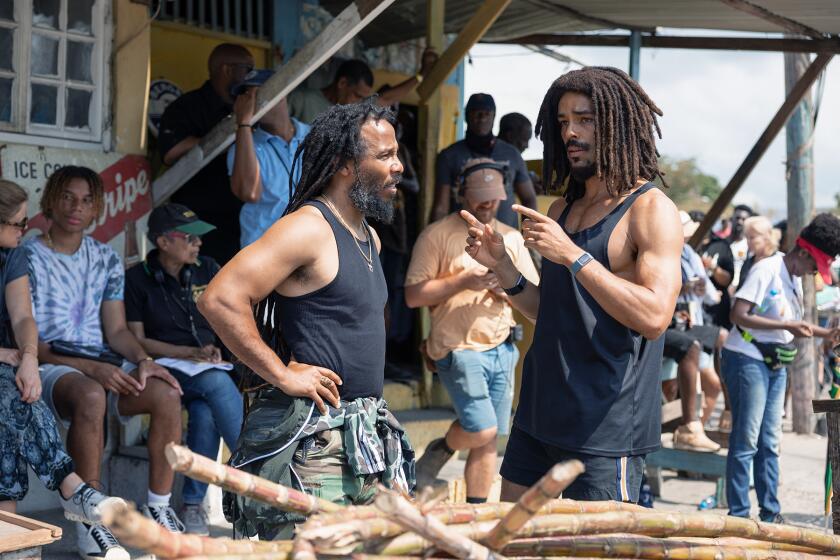‘Navalny’ director on death of Alexei Navalny: ‘The story isn’t ending. It’s just beginning’
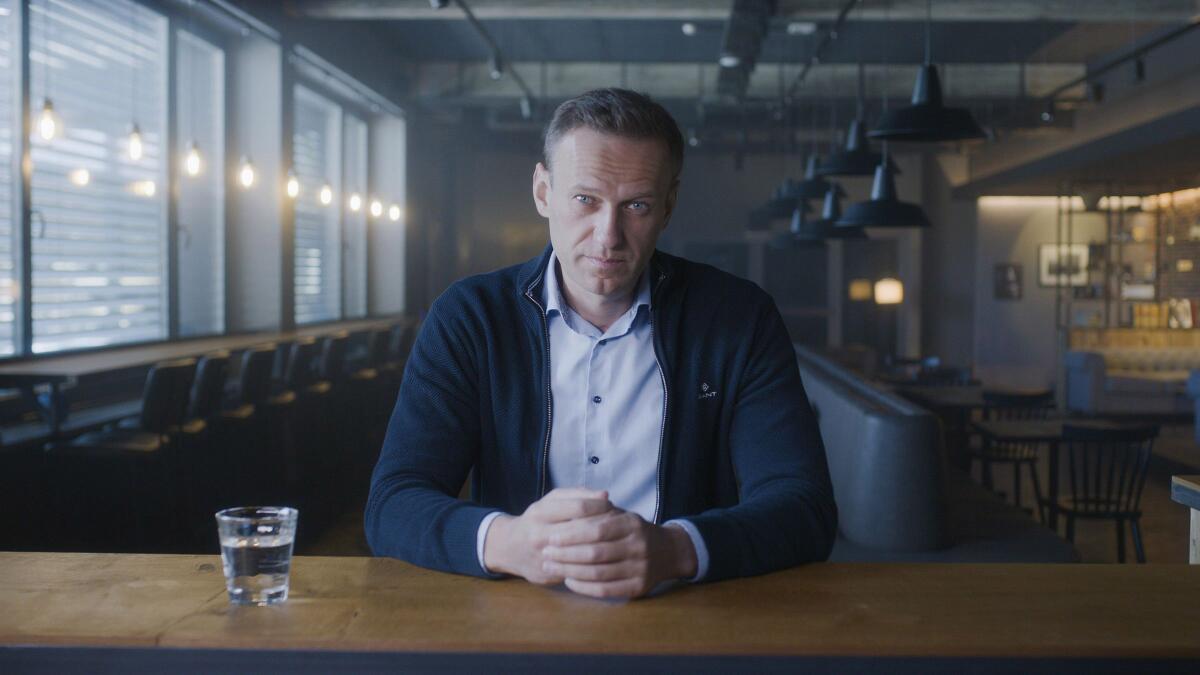
Daniel Roher’s Oscar-winning 2022 documentary, “Navalny,” helped bring the story of Alexei Navalny into sharper focus for people around the world, delivering an intimate and personal portrait of a man known as an outspoken opponent of Russian President Vladimir Putin and for having survived an attempted poisoning.
That legacy deepens today with the shocking news of Navalny’s death in a Russian prison.
The Canadian-born Roher was in Los Angeles on Friday and had just gotten off a phone call of condolences from the prime minister of Canada, Justin Trudeau, when he spoke via Zoom to The Times. Roher was shaken and still very much processing the news.
Was this outcome inevitable? Did you see Alexei’s story ending any other way?
I did. I’m actually surprised at how shocked I am, in light of the facts and in spite of the circumstance. I really thought that Navalny would be one of these great defining figures of the 21st century. I think he will be, but I thought that it would be sort of in the mold of the politician who’s in jail for 10 years and then emerges and galvanizes the country and becomes the president and does all the things he wanted to do.
And in light of today’s news, maybe I was naive about it, but I’m now having to recalibrate and reconcile my vision for this story. It’s almost like, f—, that’s how it ends? This is how the story ends? But I just have to remind myself that no, the story isn’t ending. It’s just beginning. Navalny built an organization that’s bigger than he is. It’s designed for the continuity of the movement even after he dies. And it is my express hope that, in this moment of pain and sadness and anger, people in Russia and around the world are able to transform those feelings into action.
When was the last time you were personally in touch with him?
I sent him a letter, I think, in December. I don’t know if it ever reached him. But before that, probably like eight or nine months ago. There is a letter here, I keep it next to my desk. He sent me that letter after the Oscars and after I got married. His wife and daughter were at our wedding. It was just very meaningful for me. But it’s a challenging thing. I think something that I’ll come to regret is the fact that I didn’t reach out to him more. As his life was contracting and he was existing in this gulag in these very hellish conditions, my life was expanding and all these wonderful things were happening.
We got married and we have a baby now. And of course, because of the Oscars and everything, my career is flourishing beyond my wildest dreams. And the legacy of that is now complicated. It’s almost like this Faustian bargain that I didn’t sign up for, that I don’t want. And I don’t know what the legacy of this film will be. I don’t know what the legacy of this experience of my life will be in, in light of Navalny’s murder. But I have a lot of gratitude for him, both for the moral courage he showed me, he showed the world, but also the very acute understanding that if I didn’t just stumble upon him by fluke, crossed paths with him, I wouldn’t have a baby, I wouldn’t be married. My life would look radically different. And so I’m left trying to pick up the pieces from that and reconcile what these things mean in light of the circumstance.
And have you been in touch with his wife or his family today since the news has broken?
I have not. I sent [Alexei Navalny’s daughter] Dasha Navalny a message that just said I love you and I’m sorry. I don’t know what else there is to say right now. This is sort of like the eye of the grieving storm, the shock that comes when you lose someone, trying to work through those feelings. And I want to give his family space. I’m sure they’re being inundated from all over the world. This event is shocking and upsetting and just devastating.
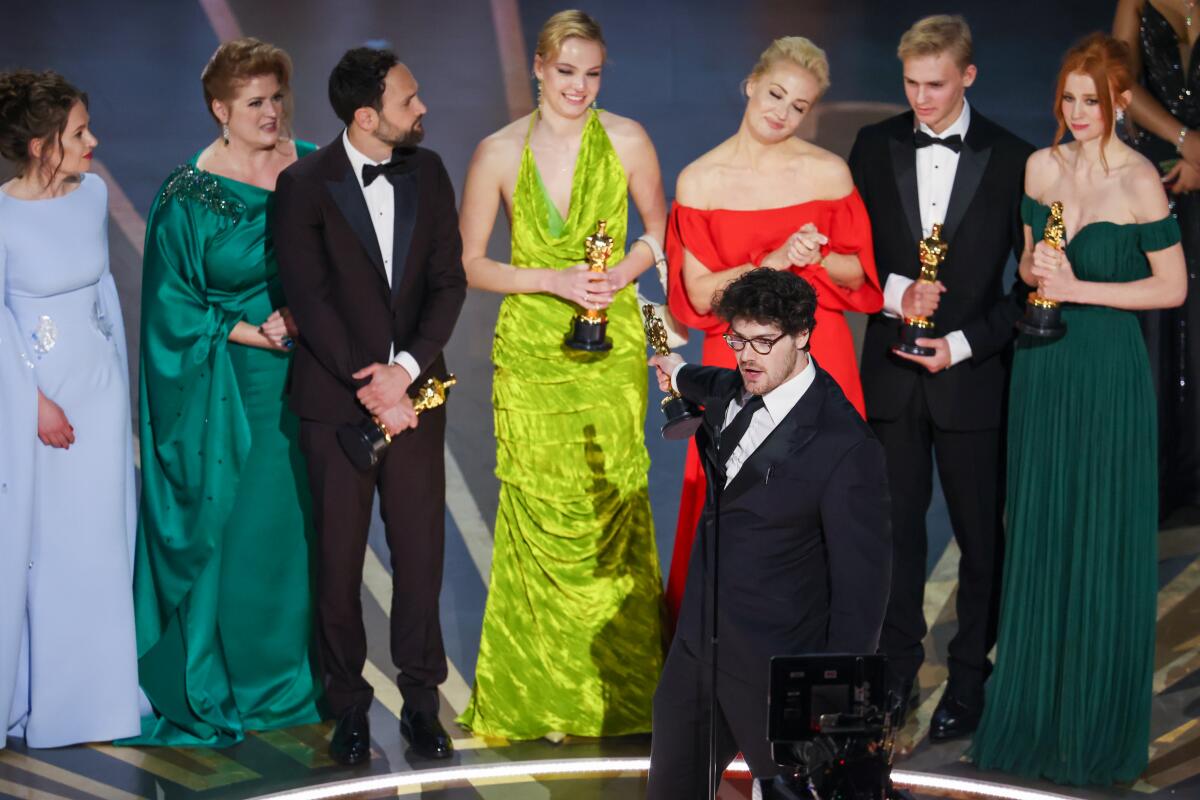
Many people have already been sharing a moment online from the doc when Navalny says, “If they decide to kill me, it means that we are incredibly strong.” Today, do you think that’s true?
I do, yeah. I mean, the only reason why they murdered him is because they’re terrified of him. Putin is a very small, insecure little man, and the walls are closing in, and I think he feels the pressure that’s starting to build. Elections are in two or three weeks in Russia. Navalny has been his normal, disturbing, outspoken, agitating self. And for whatever reason, the regime thought that now is the time.
The bold and brazen nature by which they murdered Alexei is a middle finger to the world. And it’s my hope that his supporters are able to channel, as I said, the anxiety and fear and deep sadness of this moment into action. Let’s redouble our efforts. I wonder what Navalny would think or say if he were here. And it’s something along the lines of: “Don’t cry. Let’s have a shot of vodka, raise a glass and then get back to work.” There’s a lot that we have to do in light of this brutal dictatorship. I hope that’s what people think about today.
Was his death something that you and he spoke about often? Aside from that moment in the documentary, did you have other conversations about what would happen if he were killed?
It’s kind of an uncomfortable thing. He and I became friendly, and it’s uncomfortable to ask your friend to hypothesize about their own death. The question of his mortality hovered over all of our interactions, everything he did when it came to life outside of filming. He was more wanting to talk about politics or to learn about filmmaking, which I could teach him a little bit about.
But when it comes to talking about life or death, we saved that for the cameras because it’s so uncomfortable. I’m uncomfortable asking him those questions, but I am doing my best to dislodge the discomfort and ask him these questions on behalf of the world. And they’re being repeated on radio and news all over the world today just because of how prescient they seem. But I didn’t imagine it would come true. As I said earlier, I didn’t want that to be the end of the story. I wanted it to be a good sound bite for our movie.
One thing I’m thinking about today is that our film — I used to tell people it’s a comedy, it’s funny, he’s funny. I don’t think it’s a comedy anymore. And the legacy of the movie will inevitably shift and change in my own head, and I’m still sort of coming to terms with that.
I think people are definitely going to be turning to the movie today and in the days and months to come. What would you hope that they take from it? How do you think the film may change for you?
It’s a good question. I don’t know how the legacy of it will change. I don’t know if I’ll ever be able to watch it again. I used to love seeing him up there. And I remember this extraordinary sort of flash-in-the-pan moment of my life when by fluke and circumstance I was confronted with this man, and the challenge and opportunity to tell his story. And now it’s almost like it plays as a history piece. It plays as a memorial piece. And that’s difficult and unusual. And I think I’m still trying to process that which cannot be processed. And it will take a long time for me to fully be able to articulate how this changes the work.
But I’m less interested in my perception of the movie than how Navalny’s death changes the world. It feels very much like the light has gone out. That’s what I’m thinking about today. And it’s my hope that someone takes the torch and the journey continues and his supporters continue and his staff continue the mission and the fight. And Navalny’s death is not in vain. And the beautiful Russia of the future, which he lived and died for, comes to be someday soon.
Are there any personal moments or memories you have of him that come to mind today?
I really liked to laugh with him. I think the reason why this movie works so well is our shared sense of humor. That was kind of our common language. On paper I never should have made this film. I’m a guy from Toronto. I’ve never been to Russia. I don’t speak Russian. The only thing I knew about Russia were the Russian hockey players. And I think the reason why I was able to connect with him is because we both have a sense of humor and that manifested in us, sort of like mercilessly taking the piss out of one another.
My favorite anecdote is, for those who know me, I always carry a sketchbook with me. I’m always drawing and painting and writing things down. It’s to help cope with my ADHD. And he didn’t really understand. He saw me drawing and he was like, “Daniel, what is it with this notebook?” And I explained to him that it’s for my ADHD and I just draw everything and it helps me focus. And he turned to Maria, his No. 2, and he said, “Oh, it’s so nice we hired a director with special needs.” And I think that anecdote really sort of encapsulates our relationship, the piss-taking nature of our relationship. And I think that energy comes through in the movie. The first instant of the film, I ask him a question, he rolls his eyes at me and the movie starts. And that’s very much how I remember our relationship.
When you were at the Oscars, you spoke about yourself as having taken on the role of what you called brand ambassador for Alexei Navalny. Is that a role you think you’ll continue to play?
Absolutely. As I said, I came from midtown Toronto. I never thought that life would contort in such a way that I am delivered to the doorstep of the guy and I end up working with him and I make this thing. You could not foresee that happening. But of course it happened and all of a sudden I’m traveling around the world with this movie, and audiences are responding to it and it has this energy of a sensation. And I’m in the middle of the storm. And what I’m trying to do more than anything is keep his name in the global consciousness, do whatever we can to dissuade the regime from murdering him. For us, that meant keeping his name relevant.
As we know now, that was not successful. But I think the mission of the film now changes. Now it is a legacy piece, and it will exist for history, so people never forget him. And here we have a movie that tells the story of this extraordinary man and his mission and his family and his sacrifice. And now it exists for history, which is kind of stunning.
More to Read
Only good movies
Get the Indie Focus newsletter, Mark Olsen's weekly guide to the world of cinema.
You may occasionally receive promotional content from the Los Angeles Times.

